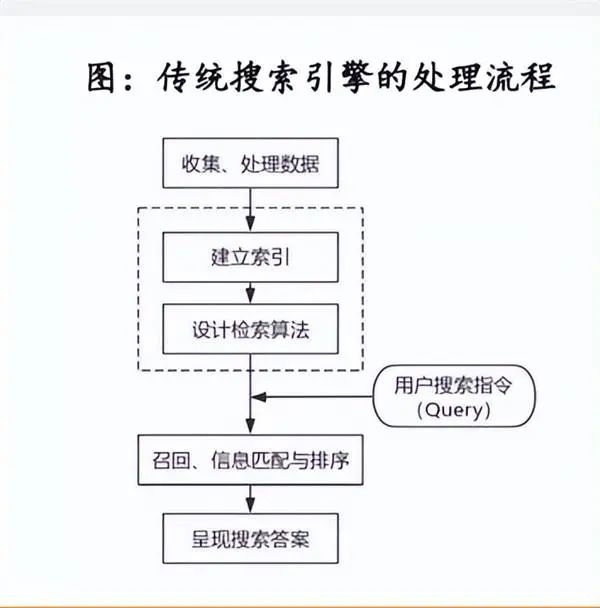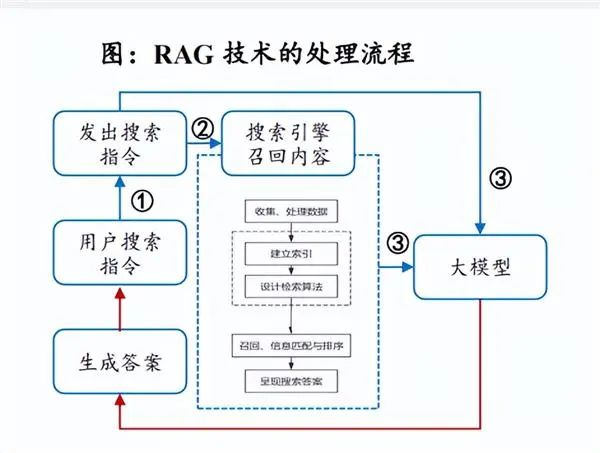AI Revolutionizing Industries: The Transformation of the Search Sector
![]() 02/12 2025
02/12 2025
![]() 475
475
The World Economic Forum's Future of Jobs Report, released on January 8, 2023 from its Geneva headquarters, revealed that 41% of global employers surveyed aim to replace human employees with artificial intelligence (AI) for specific tasks by 2030. Concurrently, nearly 70% of these companies plan to recruit staff capable of designing AI tools and enhancing their functionality.
As some professions fade, new AI-related roles emerge. Evidently, the rise of AI is ushering in a transformative revolution across industries and professions. At its core, this revolution endows machines with "intelligence" to tackle challenges in language understanding, data analysis, and decision-making. If the first three industrial revolutions liberated human physical labor and bolstered information processing, AI has the potential to significantly diminish human mental labor.
AI's prowess is profoundly impacting various industries, from customer service to high-end professions, reshaping the industry landscape. Who will be replaced? Who will rise amidst this technological wave? To address these questions, Securities Star presents a series titled "AI Empowering Various Industries." This is the inaugural article focusing on the search industry.
01. AI's Initial Impact on the Search Industry: Overcoming Search Engine Limitations
AI's initial impact on the search industry is addressing the shortcomings of traditional search engines.
When ChatGPT emerged, the industry widely anticipated AI would disrupt search. Has this prophecy materialized after a few years? From today's perspective, the answer is both yes and no. Rather than disrupting search, AI has integrated with it, making both indispensable.
Why do we say this? If you've frequently used AI tools over the past two years, you'll understand. Closed-loop AI relying solely on model inference to generate content has two significant flaws: content hallucination and process uncontrollability.
Content hallucination occurs when the content generated by an AI system (natural language processing model) doesn't align with real data or deviates from user instructions, akin to humans talking in their sleep.
Process uncontrollability arises when an AI system deviates from its predefined goals or codes of conduct, leading to unpredictable or harmful outcomes. This can manifest as decision errors, data leaks, system crashes, among others.
Conversely, frequent search engine users notice that search engines typically address the information acquisition dilemma but leave users to select, integrate, and further process the information. The final step before implementation is often missing.

(Image source: Soochow Securities)
This inherent limitation faintly heralds the potential for AI breakthroughs. Leveraging LLM+search, large models not only complete search links but also optimize and summarize based on the question, providing tailored answers and closing the loop from search to creation.

(Image source: Soochow Securities)
In response to this trend, industry players have naturally adapted. For instance, industry leader Baidu officially launched a new "AI Search" (Chat.baidu.com) function on its search homepage, marking a significant revision and upgrade. This new "AI Search" is a deep revision and functional expansion based on Baidu's original search AI partner.
As one of the key applications of Baidu's ERNIE Bot large model, "AI Search" is positioned as an AI desktop search engine. Currently, it has achieved deep integration with various content ecosystems such as Baidu Search Engine, Baidu Health, Baidu Law, Baidu Library, and Baidu Education, enriching search results' diversity and enhancing search accuracy and user experience.
02. AI's Second Impact on the Search Industry: Altering the Competitive Landscape
AI's second impact on the search industry is altering the competitive landscape. New technologies invariably bring about new changes, and internet giants are actively deploying AI search.
In November 2024, Tencent's subsidiary Sogou Input Method announced the launch of AI search, AI quick check, and other functions, introducing ima, an AI smart workbench platform integrating search, reading, and writing. 360 also announced the upgrade of its 360 AI search to nano search.
In December, ByteDance first announced the launch of Doubao for PC, a browser plugin targeting the AI search market, followed by Ant Group's Alipay, which unveiled a search product called "Tan Yixia," featuring AI visual search.
Additionally, Xiaohongshu, one of China's most popular social platforms, has been testing waters in AI search, previously launching products like Sousoushu and Da Vinci within the platform.
However, from the current perspective, it's unrealistic to expect AI search to fully replace traditional search engines. On one hand, established search engines like Google and Baidu recognize AI's challenges and are actively embracing AI search. For instance, Google will add an AI mode to its search engine, and Baidu already features a prominent "AI Search+" entry at the top of its search page.
Moreover, compared to traditional search, AI search poses two new requirements for users: Firstly, users need to better utilize prompts to generate deeper content. Secondly, users' ability to discern AI hallucinations in search results becomes crucial. Additionally, AI search's duration remains an issue; current market offerings generally take over three seconds to generate results, unlike traditional search's near-instantaneous results.
03. AI's Third Impact on the Search Industry: Reshaping User Habits
AI's third impact on the search industry is reshaping user habits. Starting in late 2022, the maturity of large models transformed the search habits of young people, shifting from searching for answers to asking AI for solutions when uncertain.
User habits are also making AI search a new traffic entry point. Search is a high-frequency, rigid demand in users' work and study, regardless of region. Compared to traditional search methods requiring screening through irrelevant results, AI search significantly enhances information acquisition efficiency, naturally appealing to users.
Furthermore, as many AI products now integrate efficiency-boosting functions like creation, document summarization, and translation, AI search is evolving beyond information retrieval into a one-stop platform for users to obtain information and solve problems. In this trend, AI search is poised to capture a share of the search engine market, becoming a new traffic entry point in the consumer market.
04. Conclusion: The Unclear Commercialization Path of AI Search
Finally, it's noteworthy that the commercialization path of AI search remains unclear. The likelihood of AI search adopting a subscription model in the future is relatively low. Whether it's search engines like Baidu or recent domestic large models, they are mostly free, making it difficult to cultivate users' paid habits. In terms of advertising, if AI search emphasizes ad-free experiences, it might even lead to a decline in existing advertising revenue for traditional search engines like Baidu and 360. Perplexity, a foreign company, once attempted to sell search capabilities as an API to the B-end market, but achieving this in China seems challenging.
Therefore, in balancing user experience and advertising needs, despite donning AI's "new clothes," AI search faces the same dilemmas as traditional search. To clarify the profit path, AI clearly needs more innovation in commercialization.
- End -








